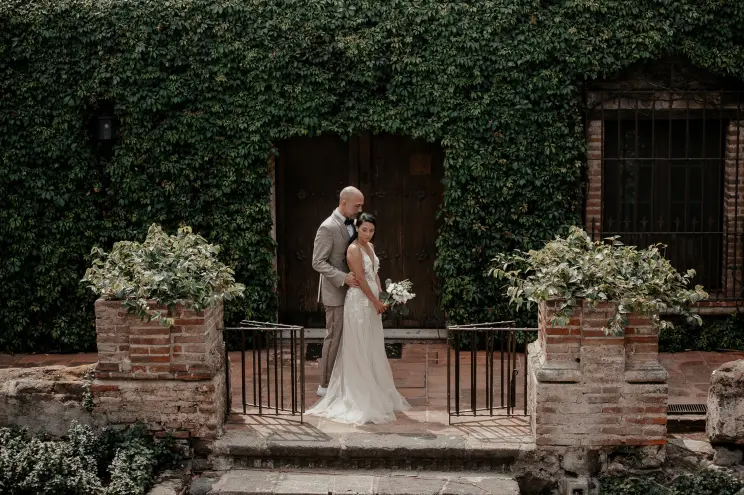
Everyone will want to know when the big day will be as soon as you are engaged. In reality, you won’t be able to choose a specific wedding date until you’ve settled on other crucial details, such as your budget. But before you get too bogged down in the specifics, take a step back and consider the big picture of your dream wedding. When in the year do you hope to have this celebration? How would you describe the ideal wedding venue? Which type of party appeals to you more: a small, outdoor rustic gathering or a glitzy, formal event on a downtown rooftop? How many guests do you plan to ave wedding venue? Before moving further, it is important to think about these factors. This blog will guide you through some important wedding preparations you should remember.
Setting a Budget:
Setting a budget is the first and foremost step in planning a wedding. This will help you prioritize the different expenses and ensure you do not overspend. It is important to keep in mind that weddings can be expensive, so it is best to set a realistic budget that you can stick to.
Creating a Guest List:
Once you have set a budget, the next step is to create a guest list. This will help you determine the venue size and the amount of food and drinks you will need to cater to. When creating your guest list, be sure to consider the preferences of both the bride and groom and their families.
Selecting a Venue:
The wedding venue is an essential aspect of any wedding. It sets the tone for the entire event and determines the overall ambience. When selecting a venue, consider the size, location, and accessibility. Also, keep in mind the time of year and the weather, as this can have an impact on your wedding day.
Choosing a Caterer:
Food is an important aspect of any wedding; choosing the right caterer can make all the difference. Consider the type of cuisine you would like to serve and the dietary requirements of your guests. Schedule a tasting session with the caterer to ensure the food meets your expectations.
Selecting a Photographer:
A wedding photographer is responsible for capturing the special moments of your big day. When selecting a photographer, consider their experience, style, and portfolio. Schedule a meeting with the photographer to discuss your preferences and ensure you are comfortable working with them.
Planning the Decorations:
The decorations play a key role in setting the tone and atmosphere of your wedding. Consider the wedding’s theme, colors, and style when planning the decorations. Be sure to hire a decorator who understands your vision and can bring it to life.
Choosing the Bridal Party:
The bridal party is an important aspect of any wedding; choosing the right members can make a big difference. When selecting your bridal party, consider the relationships you have with your family and friends, as well as their availability and willingness to participate.
Wedding Dress:
A wedding dress is another essential aspect of the big day. Be sure to select a wedding dress or suit that is both comfortable and appropriate for the occasion. When selecting bridesmaid dresses or groomsmen attire, consider the color scheme and style of the wedding.
Entertainment:
Wedding entertainment is essential to any wedding, and many options exist. Consider hiring a live band, a DJ, or a solo musician to provide music for the reception. You can also include fun activities such as photo booths, lawn games, or a dance floor to entertain your guests throughout the evening.
Wedding Favors:
Wedding favors are an excellent way to thank your guests for attending your wedding. Consider personalized gifts such as candles, chocolates, or small trinkets that your guests can take home as a memento of the occasion.
Wedding Timeline:
Creating a wedding timeline is important in ensuring the day runs smoothly. This includes scheduling hair and makeup appointments, transportation arrangements, and setting aside time for photos and other activities.
Wedding Rehearsal:
A wedding rehearsal is a great way to ensure everyone is on the same page and that the ceremony runs smoothly. This includes practicing the processional and recessional, as well as any readings or speeches that will be given during the ceremony.
Wedding Day Emergency Kit:
It’s always a good idea to have an emergency kit in case of any unexpected situations. This can include items such as a sewing kit, pain relievers, band-aids, and other essentials that can help you and your bridal party stay prepared and comfortable throughout the day.
Finalizing the Details:
As the wedding day approaches, it is important to finalize all the details. This includes confirming bookings, sending out invitations, and creating a timeline for the day. It is also important to have a backup plan in case of any unexpected situations.
In conclusion, preparing for a wedding involves a lot of planning, attention to detail, and careful consideration of your preferences and needs. From selecting the venue to choosing the bridal party, many different aspects of the wedding require attention and effort. However, by following these tips and ideas, you can ensure that your wedding day is a success and that you create memories that will last a lifetime. Whether you prefer a traditional or modern approach or a small or large celebration, the key is to stay organized, communicate with your vendors and wedding party, and remember what matters most – celebrating the love between you and your partner.